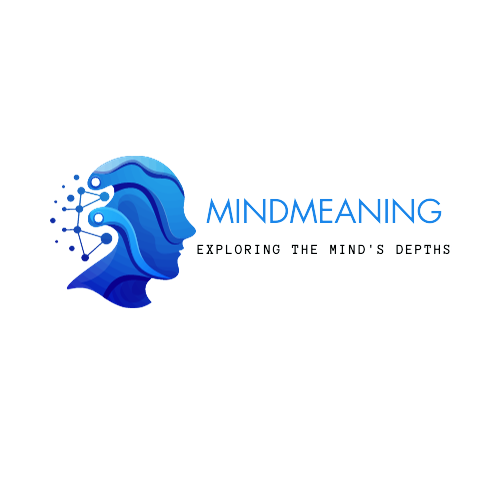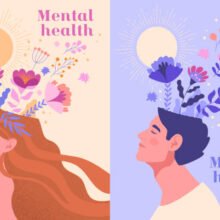Expressive Therapies in Mental Health: What You Need To Know
Mental health disorders are prevalent in today’s society and can have a significant impact on individuals’ lives. Traditional forms of therapy such as talk therapy, cognitive-behavioral therapy, and medication can be helpful, but they may not be suitable for everyone. This is where expressive therapies come into play. In this article, we will discuss expressive therapies in mental health, their benefits, and how they can help individuals cope with mental health disorders.
Section 1: What are Expressive Therapies?
Expressive therapies encompass a variety of creative arts such as music, dance, art, and drama to help individuals express themselves and communicate their feelings. It is a non-traditional form of therapy that focuses on the creative process and expression rather than verbal communication. The goal is to allow individuals to connect with their emotions and experiences in a new and unique way.
Section 2: Types of Expressive Therapies
There are several types of expressive therapies used in mental health treatment, including:
- Art Therapy: Involves the use of various art materials and techniques to help individuals express themselves creatively. Art therapy can help individuals with anxiety, depression, trauma, and other mental health disorders.
- Music Therapy: Uses music to help individuals connect with their emotions and promote relaxation. It can be helpful for individuals with mood disorders, developmental disabilities, and chronic pain.
- Dance/Movement Therapy: Incorporates movement and dance to help individuals express themselves and promote physical and emotional well-being. It can be helpful for individuals with trauma, eating disorders, and anxiety.
- Drama Therapy: Uses role-playing and improvisation to help individuals explore and express their emotions. It can be helpful for individuals with mood disorders, PTSD, and addiction.
Section 3: Benefits of Expressive Therapies
Expressive therapies have several benefits for individuals with mental health disorders, including:
- Non-Verbal Communication: Many individuals struggle with verbal communication, and expressive therapies provide an outlet for non-verbal communication.
- Emotional Expression: Expressive therapies allow individuals to express their emotions in a safe and non-judgmental environment.
- Stress Reduction: Engaging in creative activities can reduce stress levels and promote relaxation.
- Improved Self-Esteem: Expressive therapies can help individuals build confidence and self-esteem by allowing them to express themselves in a positive and healthy way.
Section 4: Who Can Benefit from Expressive Therapies?
Expressive therapies can be beneficial for individuals with a variety of mental health disorders, including:
- Depression and Anxiety: Expressive therapies can help individuals with depression and anxiety by providing a creative outlet for their emotions and promoting relaxation.
- Trauma: Expressive therapies can be particularly helpful for individuals who have experienced trauma, as it allows them to express and process their emotions in a safe and supportive environment.
- Developmental Disabilities: Expressive therapies can be helpful for individuals with developmental disabilities by providing an alternative way to communicate and connect with others.
- Substance Abuse: Expressive therapies can be a helpful adjunct to traditional addiction treatment by allowing individuals to explore and express their emotions in a safe and supportive environment.
Section 5: How to Find a Qualified Expressive Therapist
When seeking an expressive therapist, it is essential to find a qualified professional who has the appropriate training and credentials. Here are some tips to help you find a qualified expressive therapist: Ask for Referrals: Ask your healthcare provider or mental health professional for a referral. Research Credentials: Look for therapists who are licensed or certified in their specific field.
Check to see if they are a member of a professional organization such as the International Expressive Arts Therapy Association (IEATA) or the American Art Therapy Association (AATA). These organizations have strict standards for certification and training.
Check Experience: Look for therapists who have experience working with individuals with similar needs to yours. Ask about their approach and philosophy to ensure that it aligns with your goals and values.
Read Reviews: Look for reviews or testimonials from previous clients. This can give you insight into the therapist’s approach and effectiveness.
Consider Accessibility: Consider the therapist’s location, availability, and fees. Some therapists offer teletherapy or sliding scale fees to make therapy more accessible.
Overall, it is important to find a therapist who you feel comfortable with and who has the expertise to help you achieve your therapeutic goals. Don’t be afraid to ask questions or take the time to find the right fit.
Section 6: Conclusion
Expressive therapies can be a powerful tool in mental health treatment, allowing individuals to explore their emotions and experiences in a safe and supportive environment. Through a variety of modalities such as art, music, and movement, individuals can gain insight into their thoughts and feelings, process trauma, and develop new coping skills.
While expressive therapies can be used as a standalone treatment, they are often used in conjunction with other forms of therapy or medication. It is essential to find a qualified and experienced expressive therapist who can help guide you through the process and tailor treatment to your individual needs.
If you are struggling with mental health issues, consider exploring expressive therapies as a potential treatment option. With the help of a qualified expressive therapist, you can work towards healing and growth in a unique and creative way.
Here are some reputable organizations’ websites that provide information and resources on expressive therapies and mental health:
- American Art Therapy Association: https://arttherapy.org/
- American Music Therapy Association: https://www.musictherapy.org/
- International Expressive Arts Therapy Association: https://www.ieata.org/
- National Association for Drama Therapy: https://www.nadta.org/
- American Dance Therapy Association: https://www.adta.org/
- National Alliance on Mental Illness: https://www.nami.org/
- American Psychological Association: https://www.apa.org/
- National Institute of Mental Health: https://www.nimh.nih.gov/
- Substance Abuse and Mental Health Services Administration: https://www.samhsa.gov/
- National Council for Behavioral Health: https://www.thenationalcouncil.org/







